At the end of every Def Leppard concert, Joe Elliott tells the cheering crowd, “Don’t you ever forget us, and we’ll never forget you!” These words come from deep within Elliott’s heart. They were the fadeout lyrics of his favorite band Mott The Hoople’s farewell single, “Saturday Gigs.” This final song chronicles the band’s history from its 1969 Roundhouse gigs to its weeklong 1974 Broadway engagement in New York City (with Queen as the opening act) and its fizzled-out European tour that same year.
Hailing from Hereford/Worcester, England, Mott The Hoople had a unique solidarity with their fans. In 1972 when the discouraged band was breaking up, Mott’s career was resuscitated by a huge fan, David Bowie, who gave them their anthemic hit single “All the Young Dudes.” Bowie also produced their All The Young Dudes album. Joe Elliott was among a resolute crowd of young Mott The Hoople fan club members that included Mick Jones of the Clash, Morrissey and future Pakistani Prime Minister Benazir Bhutto.
In the early 1970s, Mott The Hoople was all flash and crash. When they crashed one last time, singer Ian Hunter went solo in 1975. Hunter partnered with his buddy Mick Ronson (guitarist of Bowie’s band the Spiders From Mars), who had very briefly been a member of Mott, at the end.
Upon Hunter’s departure, the Hoople’s remaining members—Overend Watts, Dale (Buffin) Griffin and Morgan Fisher—with the addition of vocalist Nigel Benjamin and guitarist Ray Major, formed a band called (simply) Mott.
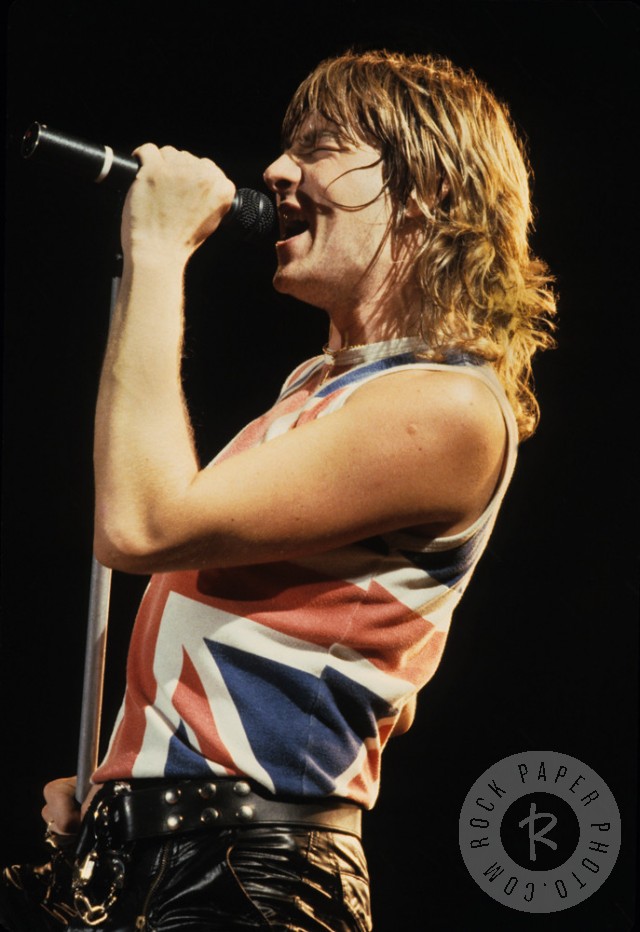
Joe Elliott performing at his “day job” with Def Leppard. (Photo © Mark Weiss via RockPaperPhoto.com; used with permission)
Thirty-five years after their breakup, Mott The Hoople reunited for a triumphant week of gigs at Hammersmith Odeon in October 2009. Elliott joined in on the encores. His side band, the Down N’ Outz (performing Mott songs and Ian Hunter solo material) was the opening act. For the momentous occasion, Elliott gifted Hunter a Maltese Cross guitar, replicating his iconic Mott axe. Hunter claims that it sounds much better than the old one!
Best Classic Bands spoke to Elliott about Mott in 2016.
Best Classic Bands: When did you first hear Mott The Hoople on record and where and when was the first time you saw them live?
Joe Elliott: The first time I heard Mott The Hoople on record was an Island Records compilation album called El Pea in 1971. Twenty tracks for £1.99—a bargain! The first time I ever heard them was on Radio Luxembourg when [MTH’s] “Downtown” was Record of the Week, which meant it got played every hour after 7 p.m. for a week! Great exposure, but sadly no one bought it. The first time I saw them live was in 2009 the first of the two warm up (reunion) shows in Monmouth, Wales. I missed them the first time around, but made up for it by seeing every reunion show in 2009 and 2013!
When did you meet the band? Was it when you climbed up a drainpipe to get backstage?
JE: No, the drainpipe incident has been exaggerated somewhat! Yes, we (me and my three gigging mates) snuck back and timidly knocked on the dressing room door, to be greeted by [guitarist] Earl Slick, but as that name may hint at, it was 1977 and the [Ian Hunter] Overnight Angels tour. So actually, I met them all individually over the years. I met Ian Hunter in New York for the first time in 1980, and I met Overend at a party in 1983 and hung out a lot with him in his junk shop in Acton. We played postal chess for a while too! He and Buffin came to see Def Leppard at Wembley in 1988. [MTH organist] Verden Allen and I met at the Mott The Hoople convention in Dudley, along with [MTH guitarist] Luther Grosvenor [a.k.a. Ariel Bender] in 1999 and Ralpher [guitarist Mick Ralphs] I’d met here and there throughout his career. All good people!
What intrigued you about Ian Hunter as a songwriter and front man?
JE: I wouldn’t know what you’d have called it when I was 11 years old, but now I would say it was his distinctive vocal delivery, “better than Dylan” lyrics and the fact he didn’t come across as someone inaccessible. All three still ring true to me.
Are you as big a fan of Bob Dylan as Ian Hunter is?
JE: I’m in the “other people do his songs better” camp.
Related: Hunter was among those who joined Def Leppard for an all-star jam at their 2019 Rock Hall induction
Mott The Hoople’s wild, riotous gigs were amazing. Why did they have such disappointing album sales?
JE: Ah, the $64,000 question! Possibly because if everyone who saw them live bought an album, it still wasn’t enough to chart back then. You needed the massive push of a hit, which they didn’t have until “Dudes.”
Where did the band initially fit into the music scene in England, and how did that change after Bowie’s (and Mick Ronson’s) involvement?
JE: They were musically all over the place up to [1971’s] Brain Capers, which was much of the charm. After that I think the dynamic changed when Bowie suggested Ian go up front and center, which apparently didn’t go down too well with other band members. Verden & Ralpher eventually quit.
Did you appreciate Ariel Bender as much as Mick Ralphs (originally) on guitar?
JE: Not at the time as I only ever heard him [on the live album]. If I’d seen him like my mates had done I might have had a different opinion. On The Hoople, there’s not much to judge him on, as it’s such a keyboard-heavy album, but he does have his moments on “Marionette” and “Crash Street Kidds.”
What are your thoughts on Overend Watts (bass) and Verden Allen (keyboards)?
JE: Overend Watts is such a great guy. He’s always been great to me. Back in 1984 he gave me about 12 cassette tapes with all this unreleased stuff on it (a lot of which came out on the 1999 boxed set, a lot that didn’t) with handwritten notes, which was super cool of him. He gave me a money box from his junk shop that obviously I still have, and when I saw him in 2009 at the reunion shows we picked up from where we left off a few years earlier. People in bands seem pretty good at doing that. I met Verden for the first time at the MTH convention in 1999. He was playing with his own band that night so the opportunity to converse was limited but he’s very friendly. My favorite Hammond organ player ever!
What has Mott The Hoople taught you?
JE: Don’t split up when it gets difficult! They could and should have been enormous, but it was not to be.
How much have you enjoyed playing their material in your side band Down N’ Outz?
JE: Oh, very much so! We didn’t get much chance to do MTH until album number two but it was worth the wait!
What is your relationship with Mott’s former members now?
JE: Well, to be honest Ian is the only one I’m in regular contact with, but I did see Mick at the Bad Company gig in Dublin about a month ago. Love him, great person and great player.
What are your three favorite Hoople albums and songs?
JE: Albums are Mott (1973), The Hoople (1974) and Wildlife (1971). Songs are “All the Young Dudes,” “Marionette” and “Roll Away the Stone.” That was impossible! It’ll change tomorrow.
Watch a live version of “Roll Away the Stone”
Hunter turned 81 on June 3, 2020. On Sept. 30, 2019, he announced he has a “severe case of tinnitus.” The band’s frontman has been advised by his doctors to “discontinue performing until this condition subsides.”
- When John Lennon and Yoko Ono Helped Jerry Lewis - 09/04/2023
- Joe Elliott’s Love Letter to Mott the Hoople - 08/30/2018

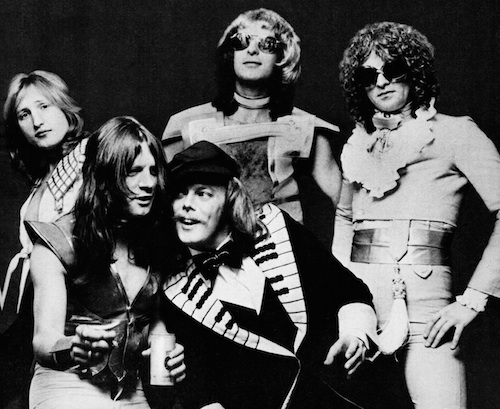
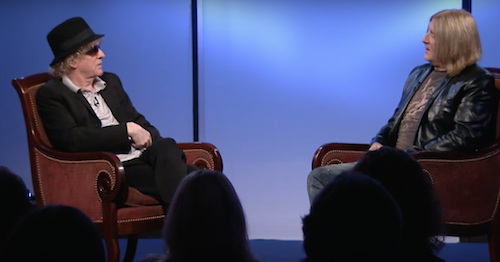
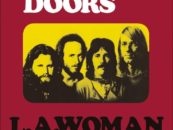
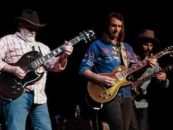
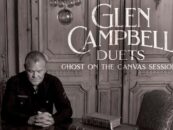
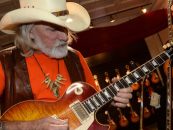

1 Comment so far
Jump into a conversation